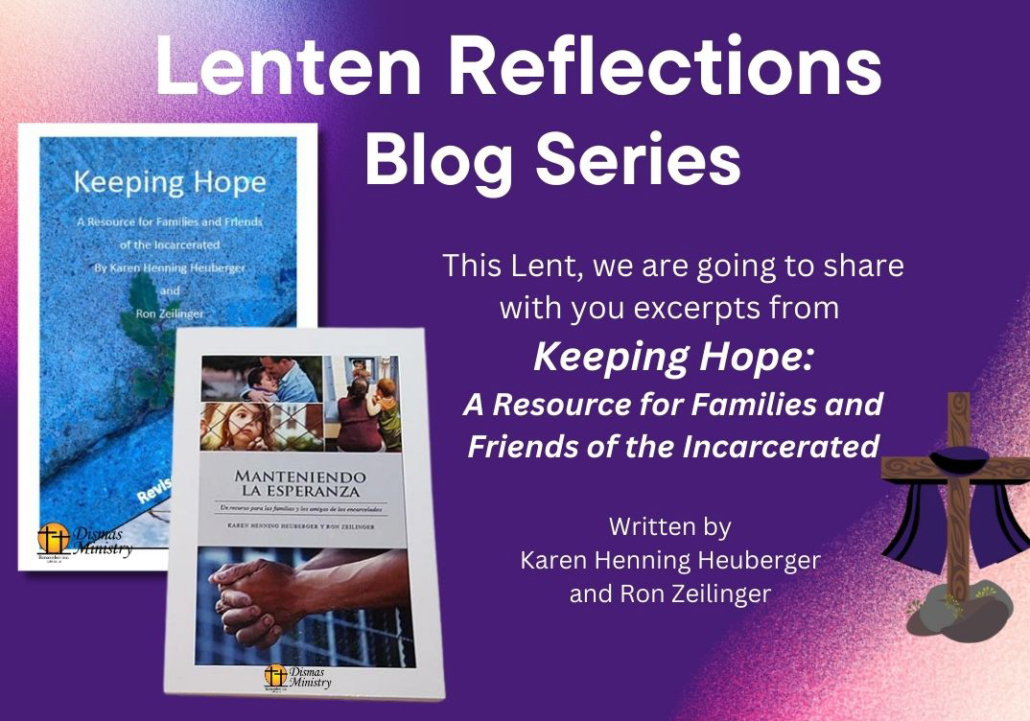This Lent, we are going to share with you excerpts from Keeping Hope: A Resource for Families and Friends of the Incarcerated.
Written by Karen Henning Heuberger and Ron Zeilinger

“Breaking the Silence: Telling Others?”
Other people’s reactions may be difficult to deal with because of the stigma that often goes with having a loved one in prison. You may choose not to tell anyone for a long time, or at all. Maybe you will only tell family or a few close friends. If your loved one’s crime makes the news, you may feel the whole world knows.
Some of your family and friends may be supportive. They may ask about your loved one and ask how they can help. You may find that others do not know what to say. Some will remove themselves from you or your loved one’s life.
Because there is such a stigma around having a loved one in prison, oftentimes family members are reluctant to tell others about it. People often feel shame, guilt, depression, and embarrassment. For these reasons, family members do not always get the support they need in their time of crisis. Telling others can be beneficial in that it allows the family member an outlet for their feelings and experiences and it can help others know how to be supportive.
It is often easier to start by telling those you feel you can trust, those you know are of good character and you believe will be supportive. You can be selective in which people you tell. Even if your loved one’s crime and incarceration have made the news, you can choose with whom you want to share your feelings. Find people who make you feel secure and accepted. Only share as much as seems safe at first. As your trust with someone grows, the more you may feel free to share. Be aware, however, that sometimes close friends are not always the ones who support you most. Sometimes those you do not expect to be as supportive are the ones who stay by your side through your experience.
From Those Who Know…
We pulled together as a family. Our brothers and sisters in Christ supported us. I could not have made it through it without them.
The first couple of years I wanted people to keep in touch and keep him on their mind, over time I let that go and have settled for doing what I want as far as keeping in touch and visiting. I no longer push my expectations on anyone.
Family members felt shame, especially when it is in the papers and news.
His father has had nothing to do with him since he was incarcerated; his brother and his sister won’t see him either.
Family was devastated, could not stop crying. Friends removed themselves slowly from the situation.
It’s like the family of the perpetrator doesn’t count.
Family was half and half. Some supported me and others will never have anything to do with my husband. They don’t even want me to mention his name. Friends – close friends were great. Others will not have anything to do with me.
We don’t talk to anyone other than our parents anymore.

READ MORE FROM KEEPING HOPE BY PURCHASING YOUR COPY ON OUR STORE PAGE.





